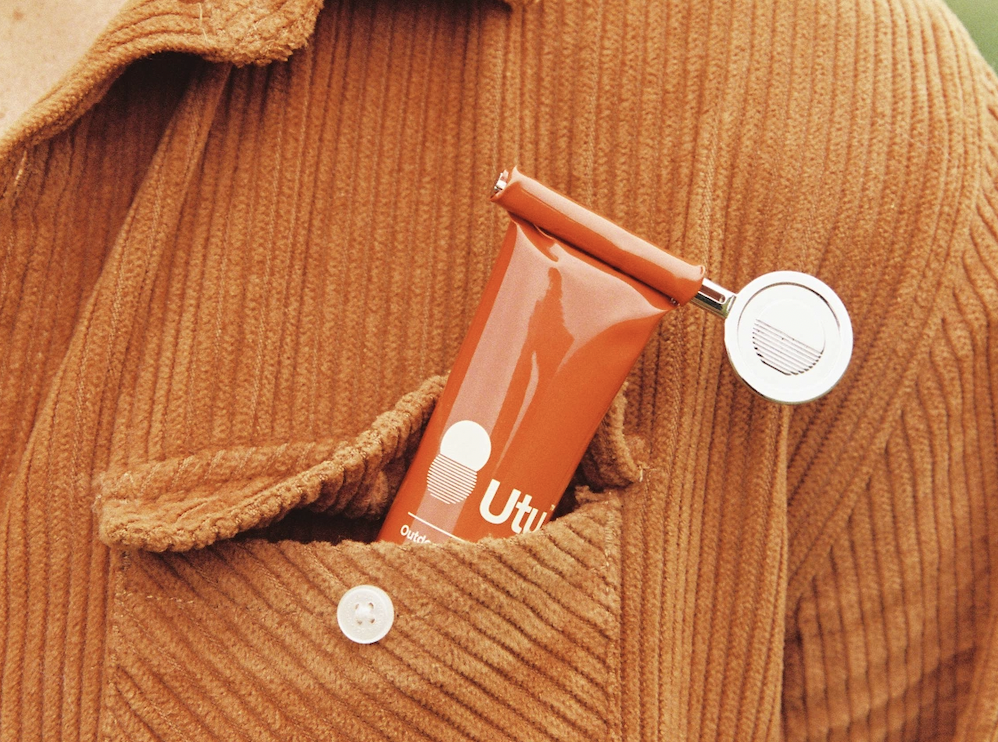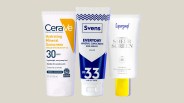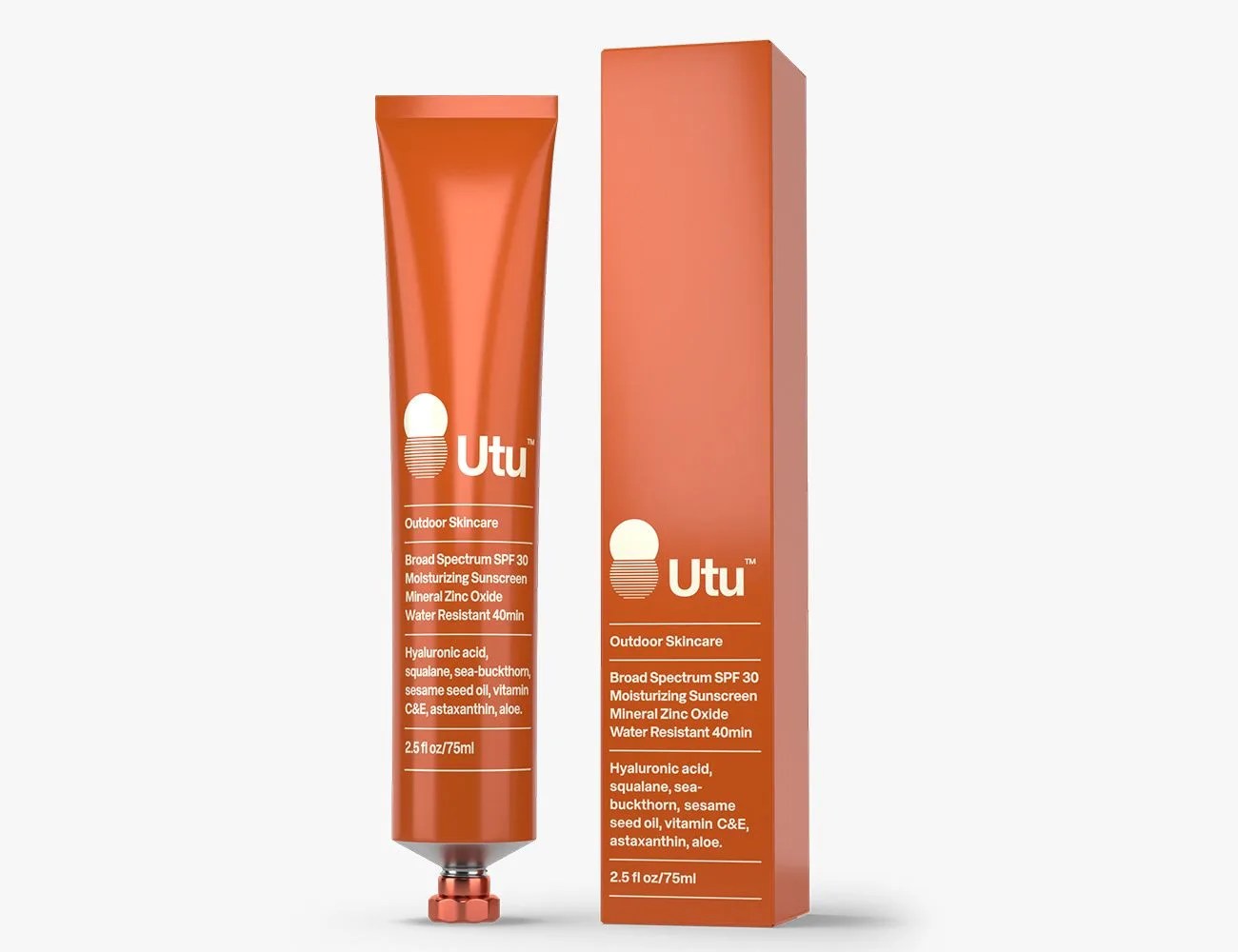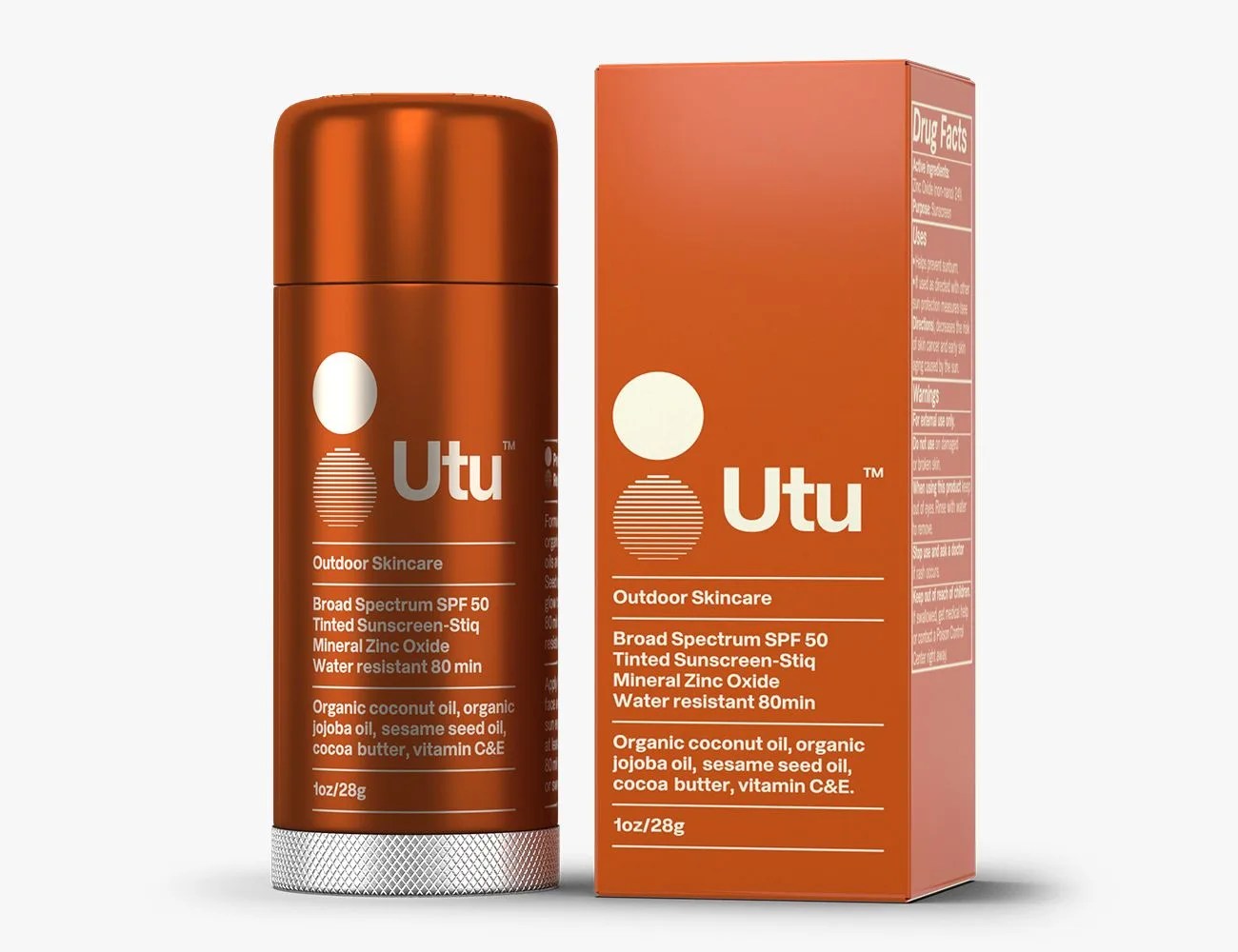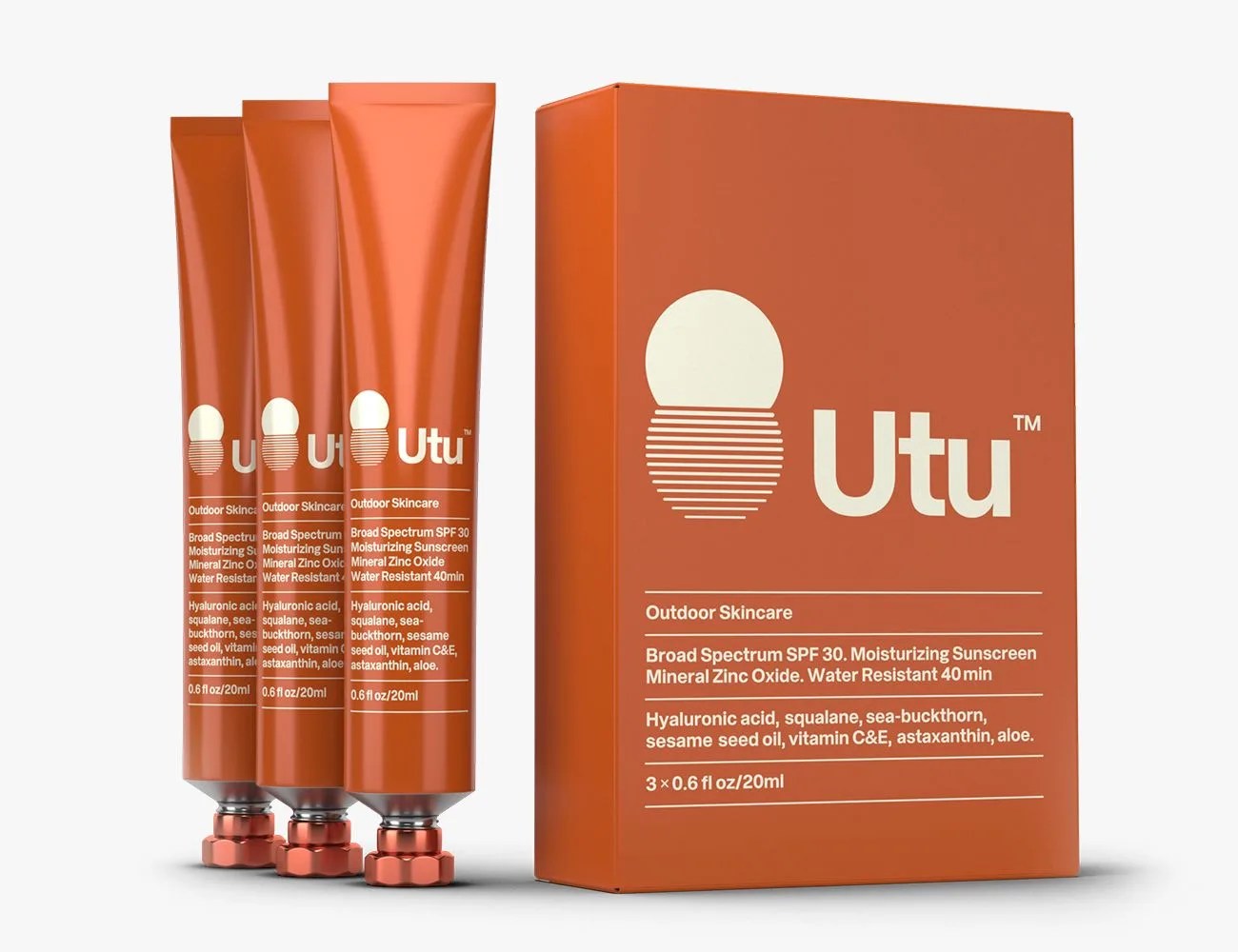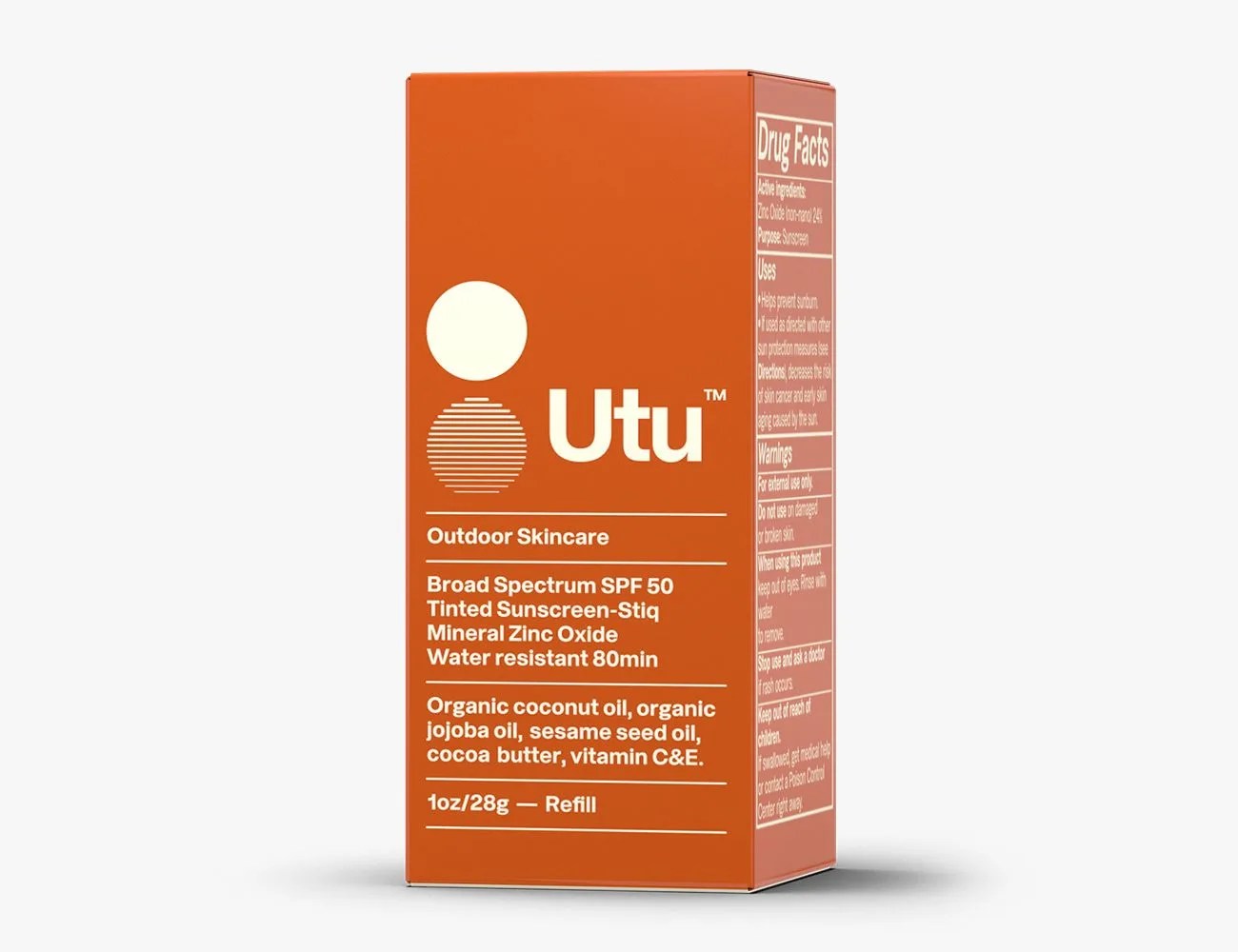In today’s world, the idea of rubbing on a lotion or spraying an aerosol for protection against the sun is nothing new. Originally developed in 1946 by Swiss chemist Franz Greiter, sunscreen didn’t really gain popularity until the late ’70s and early ’80s, when formulas got fine-tuned. For four decades, applying sunscreen has been drummed into the brains of everyone who likes to spend time outdoors, and lately, SPF ratings have become more and more prominent in skincare, foundations and cremes.
But while the world of beauty has caught on to the concept of combining skin care with skin protection, it’s still the missing ingredient in the outdoors. Most camping-centric sunscreens are just that — sunscreen — with no additional active ingredients meant to nourish the skin, too.
However, a burgeoning brand aims to change things, bringing advanced skincare to the great outdoors. Meet Utu: the new sunscreen company on the block with a mission to bring protection and nourishment to outdoor enthusiasts. Named for the ancient Sumerian sun god, Utu creates plastic-free, reef-safe, aquatic-friendly, cruelty-free and bio-based products. Yes, that’s a lot of buzzwords, but founder Richard Welch aims to move beyond them though responsible sun care that’s also good for your skin.
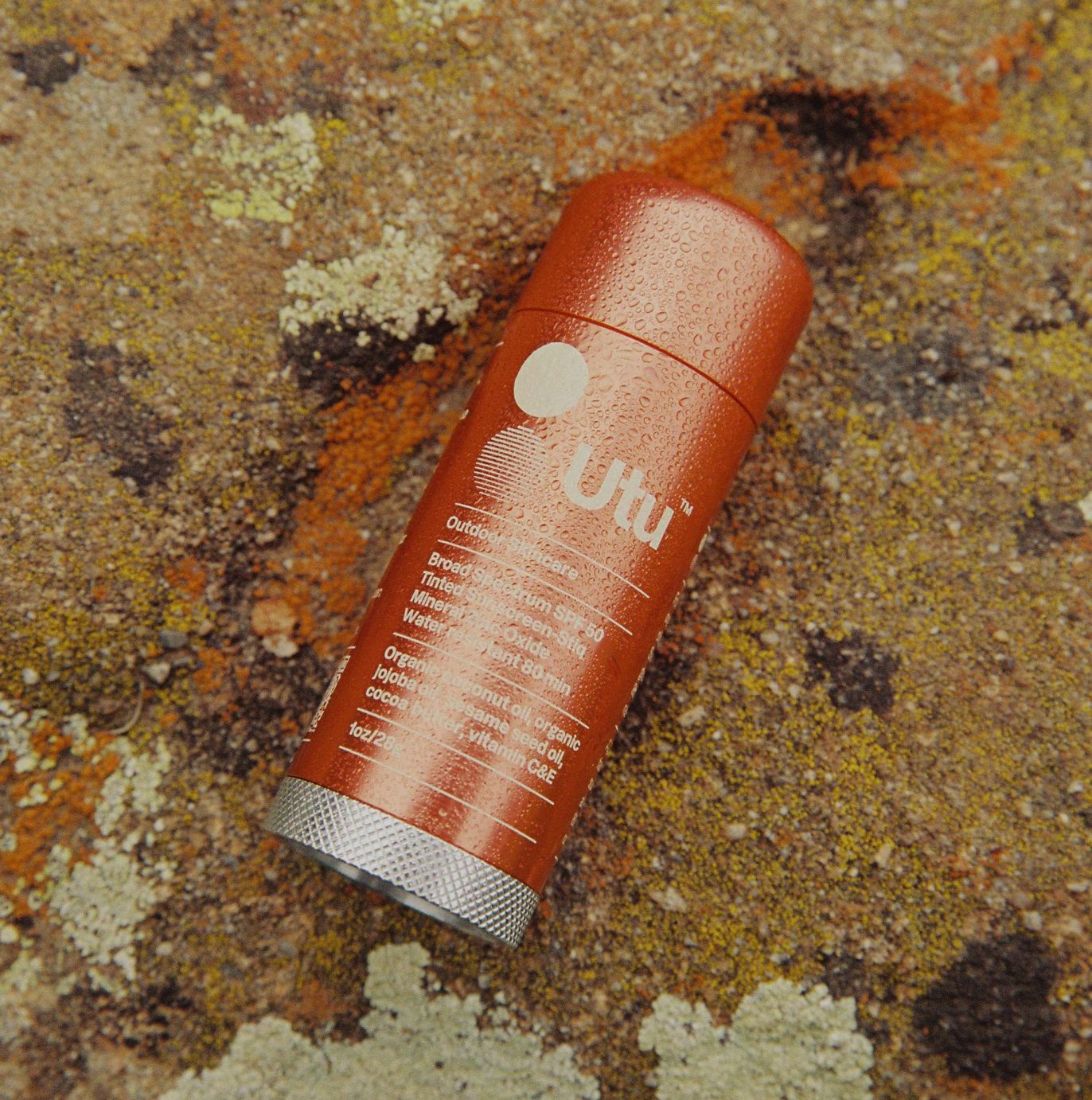
With a background in brand development and beauty, Welch saw firsthand the greenwashing that goes into product development and skincare — particularly when it comes to packaging. Many brands advertise their plastic packaging as being “recyclable.” The reality of reintegrating a plastic product back into the system, however, is much more complicated than it may seem.
“Many brands will have a logo that says ‘recyclable’ on it. The reality is that yes, hypothetically, these items are — but you have to have an advanced recycling facility that will accept colored plastic, and most will not,” Welch explains. “And if you have two types of colored plastic on a product, it cannot be recycled. I thought, ‘You know, there must be a way to create a brand and a product that’s both effective in terms of what it delivers, but also done in a [truly] sustainable manner.” And that was the beginning of Utu.
